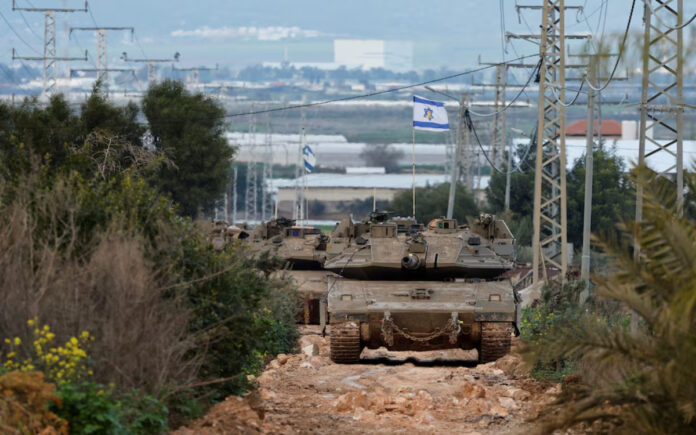Jerusalem: Israel deployed tanks in the occupied West Bank for the first time in over two decades, signaling a significant escalation in its military operations against Palestinian militant groups in refugee camps. The military has been ordered to prepare for a prolonged presence in the area as tensions continue to rise.
The deployment coincides with mounting challenges to an already fragile ceasefire in Gaza. Israeli Prime Minister Benjamin Netanyahu halted the scheduled release of Palestinian prisoners in response to public celebrations held in Gaza upon the return of Israeli hostages.
Over the past month, tens of thousands of Palestinians have been displaced from their homes as Israeli forces intensified their presence in densely populated refugee camps, including those in Jenin and Tulkarm. The military’s operations target militant factions such as Hamas and Islamic Jihad, both of which receive backing from Iran.
Israeli Defense Minister Israel Katz stated that approximately 40,000 Palestinians had been removed from these camps, which he claimed were now empty.
Tanks Enter Jenin Amid Rising Violence
The escalation follows a series of explosions on buses near Tel Aviv last Thursday. While the blasts caused no casualties, they reignited fears of suicide bombings reminiscent of those carried out during the Second Intifada, which claimed hundreds of Israeli lives.
Netanyahu responded by instructing the military to intensify operations, leading to the first deployment of tanks into Jenin. Troops demolished infrastructure, uprooted roads, and disrupted electricity and water supplies. The military reported arresting 26 militants and seizing weapons during ongoing operations in Jenin, Tulkarm, and Nur Shams, with operations expanding into Nablus, Qabatiya, and Deir Qaddis.
Nabil Abu Rudeineh, a spokesperson for Palestinian President Mahmoud Abbas, condemned Israel’s actions, stating:
“This is a dangerous Israeli escalation that will not lead to stability or calm.”
Hamas, which has been engaged in more than a year of combat with Israeli forces in Gaza following its October 7, 2023, attack on southern Israel, said the presence of tanks in the West Bank underscored the challenges Israeli forces face against militants in the camps.
Israeli Military Shifts Focus to the West Bank
With fighting in Gaza paused during a 42-day ceasefire and hostilities with Hezbollah in southern Lebanon temporarily halted, Israel has increasingly turned its attention to the West Bank. The introduction of heavy tanks alongside armored personnel carriers marks a significant shift in military tactics aimed at pressuring militant groups that have long relied on Iranian support.
“For the first time in decades in Judea and Samaria, we sent in tanks,” Katz said, using the biblical names for the West Bank.
“This means one thing, we are fighting terrorism by all means and anywhere.”
The escalation has resulted in the deaths of hundreds of Palestinian fighters and civilians, while dozens of Israelis have been killed in attacks by Palestinian militants. However, violence in the West Bank has not yet reached the scale of the Second Intifada, when Palestinian Authority forces openly clashed with Israeli troops.
Also Read | Russia Unleashes Largest Drone Barrage on Ukraine, Kyiv Reports
Growing Concerns Over West Bank Annexation
Israel captured the West Bank during the 1967 Middle East war, and Palestinians see it as a key part of a future independent state, along with Gaza. However, Israeli hardliners have increasingly pushed for its annexation.
Former U.S. President Donald Trump, who recently suggested relocating Palestinians from Gaza for a U.S.-led development project, has not yet expressed support for full annexation of the West Bank. Nevertheless, his comments have fueled Palestinian fears of a second “Nakba” or catastrophe—a reference to the mass displacement of Palestinians during the 1948 war.
In a further move against Palestinian institutions, Israel has ordered the main UN agency for Palestinian refugees, UNRWA, to cease operations in refugee camps. The Israeli government accuses the agency of aiding militant groups, a claim UNRWA has repeatedly denied.
There was no immediate response from the agency regarding the latest order.



